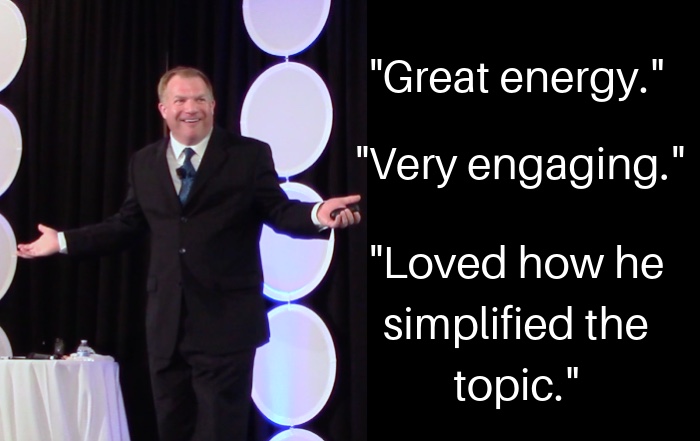 For leaders, when you start to make mistakes, it’s usually evidence that stress hurts your focus. You’ve achieved your position through an established level of competence. But it’s tested when you’re overwhelmed and your focus starts to narrow.
For leaders, when you start to make mistakes, it’s usually evidence that stress hurts your focus. You’ve achieved your position through an established level of competence. But it’s tested when you’re overwhelmed and your focus starts to narrow.
This challenge sees you forget things that you otherwise always remember. Or maybe you give a great presentation then rush off to your next meeting and leave behind something important, like your laptop.
I know the way my brain is wired is that if I have too many balls in the air, something will get dropped. And you may not want to ride in car with me when I’m mentally overwhelmed. I’m not embarrassed to admit this because research shows I’m not alone.
Like a computer, we all have a certain amount of processing power and sometimes, the system freezes up.
While we can’t remove stressful moments or overwhelming workloads, we can take some steps to minimize their impact. Consider these action steps:
When Stress Hurts Your Focus, Check In
During a busy day, find some five minute breaks, in a quiet place, when you can refocus yourself. Ask yourself:
- Where am I?
- What am I here to accomplish?
- What’s the best outcome?
Simply asking these questions can interrupt a frenzied mental state. If you feel like you don’t have five minutes to spare, then maybe you can combine it with a bathroom visit or a coffee break.
Stay in the Moment
Colleagues may be telling you important information that you don’t hear or understand because your mind is spinning with problems and distractions. This opens the door to mistakes and misunderstandings.
It’s like you’re reading a bedtime story to a child, while checking your email. Your focus is not in the right place.
Force yourself to listen to the other person, fully read the email, and think about your reply.
Call a Timeout
In the world of sports, coaches understand the concept of how stress hurts your focus. We’ve all watched our favorite team seen disengaged and sleepwalk through a big game.
In these moments, smart coaches call a timeout. This gives everyone a chance to regroup, revisit strategies, or make changes.
If you start to feel overwhelmed, can you take a moment to mentally center yourself? Most people will understand if you need to say, “I’ve been running around all day, can you give me five minutes to prepare myself for our meeting?”
For larger meetings, you may not have this power. But can you proactively block out some time on your schedule before that meeting, so you’re assured of having a chance to catch your breath.
Think of this like a coach relying on a scheduled TV timeout to allow for a re-engagement opportunity.
If You Like this Post, You’ll Love Ken at Your Meeting
<






